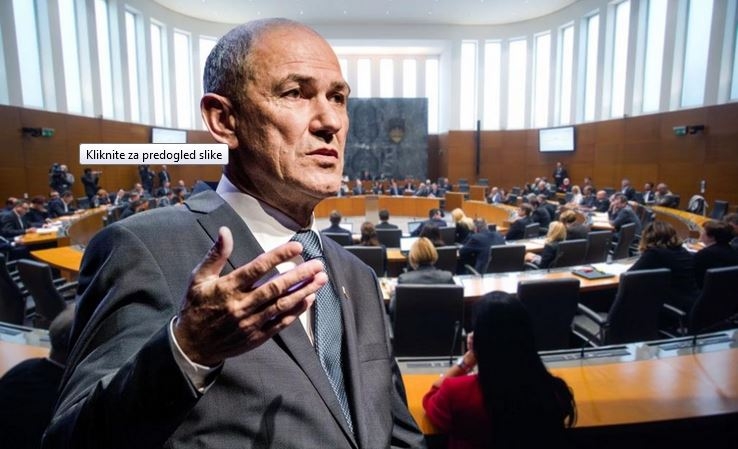Prime Minister Janez Janša acknowledged Tuesday that the planned budget deficit for this year, at roughly EUR 4.2 billion, was high, but he told parliament the spending was prudent and positioned the Slovenian economy for a recovery.
“For probably the first time in the history of this country, the government can explain to within an euro what these funds have been and will be used for,” he said at the outset of a two-day National Assembly debate on the supplementary budget for this year.
He said spending on coronavirus-related measures amounted to roughly EUR 1.6 billion up until the end of August. The biggest items were EUR 500 million for furloughed workers, roughly EUR 560 million in waived social security contributions, and EUR 150 million in income support and waiver of contributions for sole proprietors and farmers.
On the budget revenue side, it is expected that income tax receipts will be EUR 230 million lower than projected, VAT receipts will be down by EUR 720 million and excise by EUR 170 million.
As Janša pointed out, this is money that “stayed with the people, with the economy, which is why all these entities will feel less of an impact of the epidemic.” Without these measures, the Slovenian economy would have permanently or temporarily lost around 150,000 jobs.
Overall, Janša said the budget was a realistic reflection of the country’s current fiscal position. What is more, the spending priorities position the economy for recovery.
“We can be more optimistic about the years ahead. For next year the forecast for Slovenia is positive, which means we can expect growth to be not quite as high as this year’s contraction but close. If we make an extra effort, we may even achieve this goal,” he said.
Were that to happen, Slovenia would be “one of the few European countries to offset this contraction in the relatively short period of a year.”
Finance Minister Andrej Šircelj similarly said that the deficit was merely temporary. “We expect that it will decline in the coming period and we’ll be able to speak about surpluses again.”
He said this was the government’s job according to the balanced-budged rule enshrined in the Constitution, and noted that in terms of overall debt Slovenia ranked in the top half of EU countries with the smallest debt.
The supplementary budget predicts revenue at EUR 9.19 billion and expenditure of EUR 13.39 billion. The deficit amounts to 9.3% of GDP.
Janša’s and Šircelj’s views were echoed in the debate by coalition parities, with Suzana Lep Šimenko of the Democrats (SDS) arguing that nobody wanted a large deficit but that measures were needed to mitigate the economic contraction, which was indeed smaller than in the EU on average.
The opposition however did not hold back in its criticism, arguing the budget was not transparent, having items that had nothing to the with the crisis hidden among stimulus measures.
Predrag Baković of the SocDems said that given the circumstances the large deficit would not have been problem were it not for signs that it was also about “disciplining those who are making life hard for the government.”
He pointed to cuts for NGOS, and those overseeing the use of public funds or fighting corruption. “I find this unacceptable and dangerous,” Baković said, while others also pointed to cuts in culture, research, employment, housing, rail infrastructure investment and nursing homes.
Šircelj responded by saying NGOs were getting the amounts they demanded and also rejected the accusations about cuts in culture, education and science. “Some expenditure is not there because it cannot be executed,” he said, again highlighting the example of Slovenia’s postponed stint as the guest of honour at the Frankfurt book fair.
The government however faced additional accusations about lack of transparency, for instance in the procurement of personal protective equipment, as well about the questionable effectiveness of the stimulus measures.
“You merely froze the jobs but you have not prevented lay-offs this way,” Robert Pavšič of the Marjan Šarec List (LMŠ) said, projecting a deep unemployment crisis as soon as the subsidies end. He said the government managed to destroy Slovenia’s public finances in only a few months.
The vote on the budget will be taken on Wednesday.

